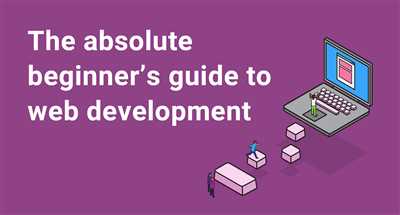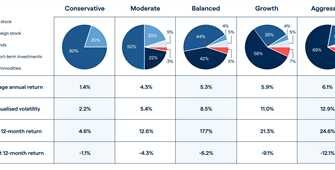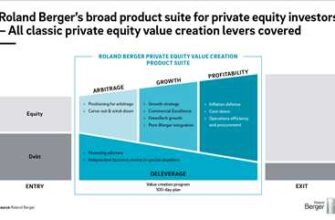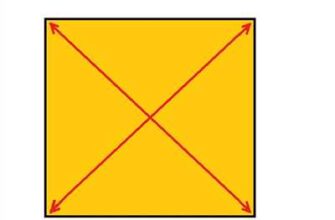
Are you willing to dive into the dynamic world of web development and build websites with functionality and control? Do you have a strong understanding of markup languages and have a knack for design? If so, a specialization in web development might be the perfect fit for you!
When starting out in web development, it’s essential to learn the necessary languages and understand how to apply them to improve the functionality of websites. The front-end, also known as the client-side, focuses on what the user sees on the screen and includes essential languages such as HTML, CSS, and JavaScript. On the other hand, the back-end, or the server-side, deals with the logic and function behind the scenes, usually involving languages such as PHP or Python.
To become a web developer, you don’t necessarily need a formal education or attend coding boot camps. There are online resources and sources of information that offer track programs and share valuable knowledge, allowing you to learn at your own pace. You can also research and experiment on your own, building projects and attending online communities to improve your skills and share experiences with like-minded individuals.
One popular option for aspiring web developers is WordPress. This content management system offers an easy-to-use interface with built-in templates, themes, and plugins, allowing you to publish websites without getting deep into coding. Alternatively, if you’re willing to dive into the world of coding, you can build websites from scratch, starting with the basics of HTML and CSS and gradually adding more functionality with JavaScript. The great thing about web development is that there are endless possibilities and something for everyone, whether you want to focus on front-end or back-end development.
Once you’ve built a strong foundation in web development, the next step is to apply your skills and search for entry-level jobs in the industry. Many companies are willing to hire candidates without a formal education but with a portfolio that showcases their work. Starting with smaller projects or volunteering your services can be a great way to gain experience and improve your web development skills.
In terms of payment and salary, web development can be highly profitable. As you gain more experience and specialize in a certain area, such as front-end or back-end development, your earning potential can increase. Freelancing opportunities are also prevalent in the industry, allowing you to work on your own terms and charge accordingly.
In conclusion, web development is a dynamic and ever-evolving field that offers a wide range of opportunities for those willing to learn and improve their skills. Starting with a strong understanding of markup languages and design, you can gradually build your expertise in front-end or back-end development. With dedication and persistence, you can turn your passion for web development into a profitable and fulfilling career.
- How to Become a Web Developer and Where to Start
- The Front-End vs. Back-End Focus
- Learning the Basics: HTML, CSS, and JavaScript
- Getting Hands-On Experience
- Continuing Education: Bootcamps and Online Courses
- The Next Level: Specialization and Career Growth
- Conclusion
- What/Who is a Web Developer
- Why Should You Become a Web Developer
- Guides
- How to Become a Web Developer
- 1 Research a Career in Web Development
- 2 Choose a Web Development Specialization
- 3 Learn Programming Languages
- HTML
- CSS
- JavaScript
- 4 Attend Web Development Courses and Boot Camps
- 5 Gain Experience to Build an Online Portfolio
How to Become a Web Developer and Where to Start
If you’re willing to learn and have a passion for technology, becoming a web developer could be a great career choice for you. With the rise of the Internet and the increasing demand for online services, front-end and back-end web development roles have become more important than ever. Joining the web development industry allows you to work on exciting projects, show off your creativity, and build something that millions of users will interact with.
But where do you start? With so many resources available online, it can be overwhelming to know where to begin. Let’s break it down and outline a path to becoming a web developer.
The Front-End vs. Back-End Focus
First, you need to decide whether you want to specialize in front-end or back-end web development. Front-end developers focus on building the user interface and experience. They’re responsible for designing and implementing the visual elements of a website, ensuring that it looks and functions as expected. Back-end developers, on the other hand, work on the server-side of web development, focusing on the logic and functionality that powers websites and web applications.
It’s common for aspiring web developers to start with front-end development since it requires a bit less technical knowledge than back-end development. However, it’s important to note that both are equally essential for building high-quality websites and web applications. Depending on your interests and goals, you can choose to specialize in one or the other, or even become a full-stack developer who is proficient in both front-end and back-end development.
Learning the Basics: HTML, CSS, and JavaScript
Regardless of which path you choose, there are a few essential languages you’ll need to learn: HTML, CSS, and JavaScript. HTML (Hypertext Markup Language) is the backbone of every web page. It defines the structure and organization of content on a website. CSS (Cascading Style Sheets) is used to control the look and feel of the website, including colors, fonts, and layouts. JavaScript adds interactivity and dynamic functionality to websites, enabling features like animations, form validation, and more.
There are plenty of online resources and tutorials available to help you learn these languages. Some popular ones include Codecademy, freeCodeCamp, and W3Schools. Make sure to practice what you learn by building your own small projects to solidify your understanding.
Getting Hands-On Experience
Once you have a basic understanding of HTML, CSS, and JavaScript, it’s time to gain some hands-on experience. One way to do this is by contributing to open-source projects on platforms like GitHub. By collaborating with other developers and working on real-world projects, you’ll not only improve your coding skills but also get a taste of what it’s like to work as part of a development team.
Another option is to apply for internships or entry-level positions at web development companies. Many companies offer internships or junior roles specifically designed for aspiring web developers. These opportunities allow you to learn from experienced professionals, work on real projects, and gain the necessary skills to become a web developer.
Continuing Education: Bootcamps and Online Courses
If you’re looking for a more structured learning experience, attending a web development bootcamp could be a great option. Bootcamps offer intensive, immersive programs that focus on practical skills and often include job placement assistance. Many bootcamps also have financing options available, making them accessible to individuals without a computer science degree.
Online courses are another excellent way to continue your education and expand your skill set. Platforms like Udemy, Coursera, and LinkedIn Learning offer a wide range of web development courses taught by industry professionals. You can choose courses that cover specific technologies or topics, allowing you to specialize in areas that interest you.
The Next Level: Specialization and Career Growth
Once you have a solid foundation in web development, you can start thinking about specializing in a specific area or technology. This could be anything from front-end frameworks like React or Angular, to back-end languages like Python or PHP. Specializing can help you stand out from the crowd and open up more opportunities for career growth.
Remember that web development is a constantly evolving field, and it’s essential to stay up-to-date with the latest trends and technologies. Follow industry blogs, join web development communities, and attend conferences and workshops to continue learning and improving your skills.
Conclusion
Becoming a web developer takes time and dedication, but with the right resources and mindset, anyone can start this rewarding career. Whether you choose to learn on your own, attend bootcamps, or complete a degree, the key is to never stop learning and building. Keep practicing, stay curious, and embrace the challenges that come your way. The web development industry offers a world of possibilities, and it’s up to you to take the first step.
What/Who is a Web Developer
A web developer is a professional who is responsible for building and maintaining websites. They are skilled in using programming languages and technologies to create functional and visually appealing websites that can be accessed and interacted with through a web browser.
Starting a career in web development offers numerous opportunities in the digital world. With the increasing demand for online services, businesses and individuals are constantly looking for web developers to create and manage their websites.
To become a web developer, one can choose to take a formal course or opt for self-learning. There are many online resources, boot camps, and guides available that can help aspiring developers master the necessary skills.
Web developers can specialize in either front-end or back-end development. Front-end developers focus on creating the user interface, using languages such as HTML, CSS, and JavaScript. Back-end developers, on the other hand, work on the server-side functionality, using languages such as PHP, Python, or Ruby.
One of the advantages of becoming a web developer is the potential to work remotely and be your own boss. Many web developers are freelancers or work for small agencies where they have the flexibility to choose their own projects and work hours.
Web development can be a lucrative career choice, as businesses are willing to pay well for professional web development services. The fact that the online world is constantly evolving means that there is always something new to learn and master in this field.
If you’re interested in starting a career in web development, here are some steps to get you on the right track:
- Decide which aspect of web development you want to focus on (front-end, back-end, or full-stack).
- Research and learn the necessary programming languages and technologies for your chosen field.
- Take online courses or attend boot camps to gain practical experience and guidance.
- Start building your own projects to showcase your skills and create a portfolio.
- Publish your work online, such as on your own website or using platforms like WordPress.
- Network and participate in web development communities to stay updated with industry trends and connect with potential clients or employers.
Remember that web development is a field that requires continuous learning and upskilling. Even experienced developers need to stay updated with new technologies and programming languages. By staying curious and willing to learn, you can build a successful career as a web developer.
Why Should You Become a Web Developer
If you are considering a career in web development, there are several compelling reasons why it’s a great choice. Here are some key reasons why you should start your journey to become a web developer:
- Interact with the Web: As a web developer, you’ll have the opportunity to directly interact with the dynamic and ever-evolving world of the internet.
- High Demand and Job Security: Web developers are in high demand, and the job market for them is expected to grow by 5% over the next decade. This means that you’ll have plenty of opportunities to land a well-paid job.
- Flexibility and Control: Web development allows you to have more control over your work environment and schedule. You can choose to work as a freelancer, start your own business, or work remotely.
- Learn and Adapt: Web development is a field that constantly evolves, so you’ll have the chance to continuously learn and improve your skills. There are always new tools, techniques, and technologies to explore.
- Create Websites and Content: One of the most rewarding aspects of web development is having the ability to create websites and digital content that can be accessed and enjoyed by users all over the world.
- Work on Exciting Projects: Web development projects can vary greatly, from small personal websites to large-scale e-commerce portals. You’ll have the opportunity to work on interesting and diverse projects.
Overall, becoming a web developer is a profitable and fulfilling career option. Whether you want to participate in the backend development or focus on user-facing design, web development offers a range of options for aspiring developers. So don’t wait any longer, get started, learn the programming languages, tools, and frameworks, and build your own websites from scratch!
Guides
If you are interested in starting web development, there are several guides you can follow to get started, gain knowledge, and eventually master this field. Here is an outline of what you need to know:
- Choose a specific area of focus: Web development is a broad field, so it’s important to narrow down your interests. Are you more interested in front-end development or back-end development? Decide where you want to focus your energy and learning.
- Start with the basics: Before diving into complex coding languages and frameworks, make sure you have a solid understanding of HTML, CSS, and JavaScript. These are the essential building blocks of web development.
- Attend web development courses or bootcamps: Instead of having to figure things out on your own, attending structured courses or bootcamps can give you a step-by-step learning process and provide you with the necessary guidance and support.
- Show what you can do: Building small websites or projects will give you hands-on experience and allow you to showcase your skills to potential employers or clients.
- Read and learn from others: There are many online resources, tutorials, and blogs that can help you stay up to date with the latest trends and technologies in web development. Read as much as you can to expand your knowledge.
- Build your online presence: Create a portfolio website or a blog where you can showcase your projects and share your knowledge with others. This will not only demonstrate your skills and expertise but also help you establish yourself as a web developer.
By following these steps and continuously learning and improving, you will be on your way to becoming a successful web developer. Remember, web development is a constantly evolving field, so staying curious and adaptable is essential for a successful career.
How to Become a Web Developer
If you’re interested in becoming a web developer, there are several steps you should follow. Here’s a step-by-step guide to help you get started:
Step 1: Understand the Basics
Before diving into web development, it’s important to have a solid understanding of the basics. This includes learning HTML, CSS, and JavaScript, which are the core technologies used to create webpages. There are plenty of online guides and courses available that can help you learn these languages.
Step 2: Build a Portfolio
One of the best ways to showcase your skills as a web developer is by creating a portfolio. This portfolio should include examples of websites you’ve built and any other projects you’ve worked on. Having a strong portfolio will give potential employers or clients a clear idea of your capabilities.
Step 3: Learn Backend Development
While front-end development involves creating the user-facing elements of a website, backend development focuses on the behind-the-scenes processes that make a website function. This includes working with databases, server-side scripting languages, and application programming interfaces (APIs). Learning backend development will make you a more versatile web developer.
Step 4: Get Familiar with Design Principles
A web developer should have a basic understanding of design principles. This includes knowing how to use colors, typography, and layout to create visually appealing websites. While you don’t need to be a professional designer, having a sense of design will make your websites more engaging and user-friendly.
Step 5: Stay Updated
The field of web development is constantly evolving, so it’s important to stay updated on the latest tools and techniques. This could involve reading blogs, following industry leaders on social media, or attending web development conferences and workshops. Keeping up-to-date will ensure that your skills are always relevant.
Step 6: Start Creating
Once you have a strong foundation in web development and a portfolio to showcase your work, it’s time to start creating. Whether you’re building websites for clients or working on personal projects, the more you practice, the better you’ll become as a web developer. Don’t be afraid to take on small projects to gain experience and improve your skills.
Step 7: Consider Getting a Degree or Certification
While a degree or certification in web development is not always necessary, it can be an asset when seeking employment or freelance opportunities. Some companies may require a degree, while others may value practical experience more. Ultimately, it’s up to you to decide if pursuing a degree or certification is worth it.
Step 8: Be Willing to Learn
Web development is a field that constantly evolves, so it’s important to be willing to learn. Keep an open mind and be willing to try new technologies and tools. This will make you a more versatile and valuable web developer.
In conclusion, becoming a web developer requires a combination of technical skills, creativity, and a willingness to learn. By following these steps and continuously improving your skills, you’ll be well on your way to a successful career in web development.
1 Research a Career in Web Development
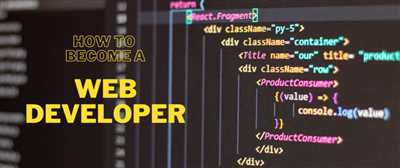
Before diving into the world of web development, it’s important to take the time to research and understand what this career path entails. With the growing demand for digital content and online functionality, web development has become an excellent choice for those who are willing to learn and master the necessary skills.
Web development is a broad field that encompasses both front-end and back-end development. Front-end developers create the user-facing part of a website, using HTML, CSS, and JavaScript to build dynamic and interactive webpages. They focus on creating a smooth user experience and ensuring high-quality code.
On the other hand, back-end developers specialize in the server-side of web development, handling the behind-the-scenes functionality that powers websites. They work with programming languages like PHP, Python, or JavaScript to create databases, handle data, and implement server logic.
While it’s possible to become a full-stack developer, proficient in both front-end and back-end development, many professionals choose to specialize in one area or the other. This allows them to dive deeper into their chosen field and become experts in their craft.
It’s important to note that web development is a constantly evolving field. Technologies and frameworks are always changing and improving, so staying up to date is crucial. Learning is a continuous process, whether it’s through attending coding boot camps, joining online courses, or even freelancing to gain practical experience.
One of the most important aspects of starting a career in web development is building a portfolio of websites that you have built or worked on. This serves as a track record of your skills and showcases your ability to create high-quality websites.
When researching a career in web development, it’s also essential to consider the job market and salary potential. Front-end developers, for example, are in high demand, and their skills are necessary for creating user-friendly and visually appealing websites. Back-end developers are equally important, as they provide the functionality and data management that make websites operate smoothly.
There are many resources available for learning web development, both free and paid. Online platforms, coding boot camps, and tutorials are just a few examples of the wealth of information out there. It’s important to find the learning style that suits you best and to be willing to put in the time and effort to master the necessary skills.
In conclusion, web development is a promising career path for those who are willing to learn and eager to build websites and digital experiences. Researching the field, understanding the different areas of specialization, and continuously improving your skills are key to success in this industry.
2 Choose a Web Development Specialization
Once you’ve decided to start your journey in web development, it’s time to choose a specialization. Web development has different areas that you can focus on, depending on your interests and goals.
One popular specialization is front-end development, which involves creating the user interface and appearance of websites. Front-end developers work with programming languages such as HTML, CSS, and JavaScript to build interactive and user-friendly web pages.
If you enjoy designing websites and want to have more control over the visual aspects, becoming a front-end developer could be a great choice for you. You’ll need to learn how to master these languages to create high-quality and visually appealing websites from scratch.
On the other hand, if you prefer working on the back-end of websites, you can specialize in back-end development. This involves building the behind-the-scenes functionality of a website, such as databases, servers, and application logic. Back-end developers typically use programming languages like Ruby, Python, or PHP to create dynamic and functional web applications.
If you have an interest in both front-end and back-end development and want to have a comprehensive understanding of web development, you can choose to become a full-stack developer. Full-stack developers are skilled in both front-end and back-end technologies, allowing them to handle all aspects of building a website or web application.
Another specialization to consider is becoming a WordPress developer. WordPress is a popular content management system (CMS) that powers a large percentage of websites. By specializing in WordPress development, you’ll learn how to build and customize websites using the WordPress platform. This can be a lucrative specialization because many businesses and individuals use WordPress for their websites.
When choosing a specialization, consider your interests, the demand in the job market, and the opportunities for growth and employment. Take the time to research each specialization, attend web development bootcamps or online courses, and talk to professionals in the field to gather information. This will help you make an informed decision about which specialization to pursue.
Finally, it’s important to note that web development is a constantly evolving field, and there’s always new information and technologies to learn. Even after choosing a specialization, you’ll need to stay up-to-date with the latest advancements and trends in web development. Having a willingness to learn and adapt is crucial for success in this ever-changing digital world.
By specializing in a specific area of web development, you can hone your skills and become an expert in that field, which can open up more job opportunities and allow you to work on exciting projects. So take the time to consider your options, gain knowledge through online courses or attending web development bootcamps, and choose the specialization that suits you best.
3 Learn Programming Languages
When it comes to web development, programming languages are the foundation of the entire process. They allow developers to create the functionality and design of websites and online applications. Here are three programming languages that you should consider learning:
HTMLHTML, or Hypertext Markup Language, is the language used to create the structure and layout of web pages. It includes elements such as headings, paragraphs, buttons, and more. HTML is the backbone of every website and is a must-learn language for any web developer. | CSS
CSS, or Cascading Style Sheets, is used to define the colors, fonts, and overall look and feel of a website. It allows developers to create visually appealing designs and make websites more user-friendly. CSS works alongside HTML and is an essential skill for web designers. | JavaScriptJavaScript is a powerful programming language that allows developers to add interactive features and dynamic content to websites. With JavaScript, you can create forms, perform calculations, handle user interactions, and much more. It is a must-have skill for both frontend and backend web developers. |
To become a full-stack web developer, it’s important to master these three languages. HTML, CSS, and JavaScript work together to create websites with functionality, performance, and a great user experience.
There are many resources available online to learn these programming languages. You can find free courses, tutorials, and even paid programs that guarantee you’ll become a proficient developer. However, having a degree or certification isn’t a guarantee of employment or a high salary. What matters most is your skills and the projects you’ve worked on.
Instead of simply learning the languages in theory, it’s important to practice and apply your knowledge to real projects. This allows you to demonstrate your abilities and build a portfolio to showcase to potential employers or clients.
Finally, keep in mind that web development is constantly evolving, and new technologies and programming languages regularly emerge. Stay up-to-date with the latest trends and be ready to learn new languages and frameworks as they become popular.
In conclusion, learning HTML, CSS, and JavaScript is the first step in becoming a web developer. These three programming languages are fundamental in creating websites and online applications. Mastering them will allow you to build functional, visually appealing, and interactive websites. Keep learning, practicing, and staying current, and you’ll be on your way to a successful career in web development.
4 Attend Web Development Courses and Boot Camps
If you’re interested in becoming a web developer and want to gain the necessary knowledge and skills to start a career in this field, attending web development courses and boot camps can be a great option. These programs provide you with the essential background and training to understand the basics of web development and build your own web applications from scratch.
Web development courses and boot camps are popular because they offer a structured learning environment where you can focus on specific areas of web development. Whether you want to specialize in frontend or backend development, these courses can help you track your progress and performance and give you the necessary tools and knowledge to become a successful web developer.
One of the benefits of attending web development courses and boot camps is that they’re often offered in different formats, such as in-person classes, online courses, or hybrid options. Depending on your schedule and preferences, you can choose the option that works best for you.
Another advantage of attending web development courses and boot camps is the potential for getting paid. Some programs offer a salary or payment option, allowing you to earn money while learning and gaining experience. Alternatively, there are also free courses available, which can be a great way to learn web development without spending any money.
When considering web development courses and boot camps, it’s important to do your research and choose reputable programs. Make sure to read reviews and testimonials from previous students to ensure that the program you’re joining is legitimate and can provide you with the necessary skills.
Here are some popular web development courses and boot camps that you can consider:
- Coding Bootcamps: These intensive programs teach you coding languages and frameworks, such as HTML, CSS, JavaScript, and more. They often focus on hands-on projects and real-world examples to help you gain practical experience.
- Web Development Courses: These courses offer a more structured approach to learning web development. They cover topics such as website structure, asset management, cascading style sheets (CSS), and more.
- WordPress Courses: If you’re interested in learning how to build websites using WordPress, there are specialized courses available. These courses focus on WordPress installation, theme customization, plugin management, and more.
- Backend Development Courses: If you want to specialize in backend development, there are courses available that teach you programming languages and frameworks, such as Python, Ruby on Rails, and more. These courses focus on server-side development and database management.
By attending web development courses and boot camps, you can gain the necessary skills and knowledge to start a career in web development. Whether you’re a beginner or already have some experience, these programs can help you improve your skills and become a proficient web developer. So, consider attending a web development course or boot camp and take the first step towards a rewarding career in the field.
5 Gain Experience to Build an Online Portfolio
One of the best ways to kickstart your web development career is by gaining real-world experience. Building a portfolio of projects can showcase your skills and attract potential clients or employers. Here are some steps you can take to gain experience and build an online portfolio:
- Start with personal projects: Begin by working on personal projects that interest you. This can be a website for a hobby, a blog, or anything else you are passionate about. This will give you the flexibility to experiment and learn while building something meaningful.
- Join open-source projects: Participate in open-source projects on platforms like GitHub. This will give you the opportunity to collaborate with other developers and contribute to real-world projects. It’s a great way to learn from experienced professionals and gain exposure.
- Freelance or offer your services for free: Consider freelancing or offering your services for free to gain practical experience. This way, you can build a track record and gradually start charging for your work. Websites like Upwork or Freelancer offer opportunities to find clients and work on various projects.
- Apply for internships or entry-level positions: Apply for internships or entry-level positions at web development companies or agencies. This will allow you to work under the guidance of experienced professionals and gain valuable hands-on experience. Even if the salary is minimal or non-existent, the knowledge and skills you gain will be worth it.
- Specialize and master a specific area: Instead of trying to become a full-stack developer right away, consider specializing in a specific area, such as front-end development, backend programming, or UI/UX design. Mastering one area will make you an expert in that field and increase your chances of getting hired or finding clients.
Having an online portfolio is crucial in the web development industry since it allows potential clients or employers to see your work and assess your skills. Your portfolio should include examples of websites or web applications you have built, as well as a list of your technical skills and any relevant certifications or degrees.
When building your portfolio, make sure to cross-check and test all the pages to ensure they are functioning properly. Pay attention to the structure, colors, and design elements to create an excellent user experience. Consider using popular CMS platforms like WordPress, which lets you easily share your work online via email or social media.
Remember, while gaining experience is important, continuous learning is equally essential in the constantly evolving field of web development. Stay up-to-date with the latest trends and technologies, and always be open to learning new programming languages or frameworks. This will help you stay competitive and offer better performance to your clients or employers.

